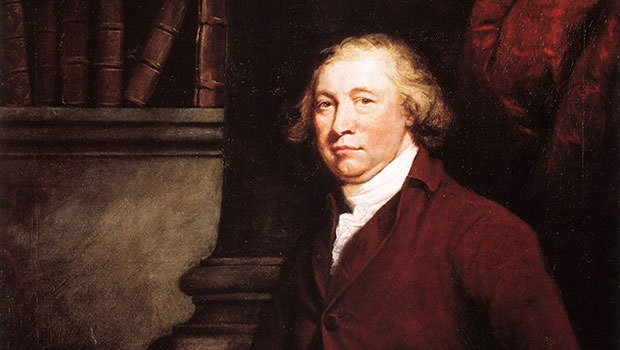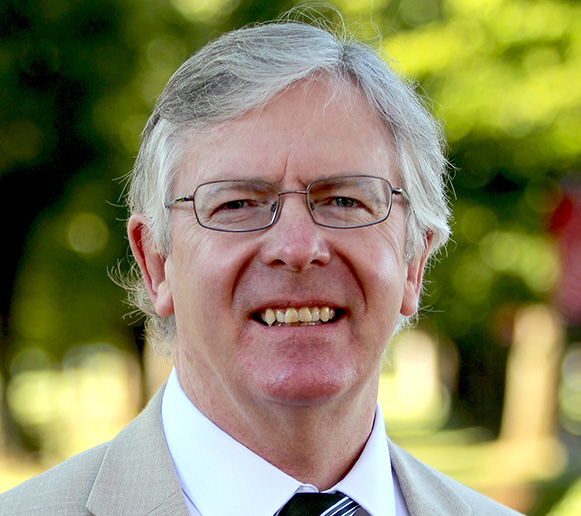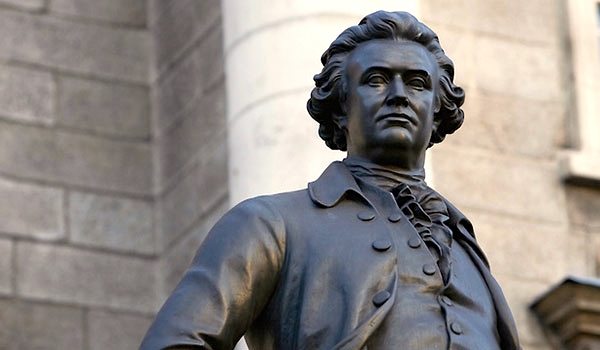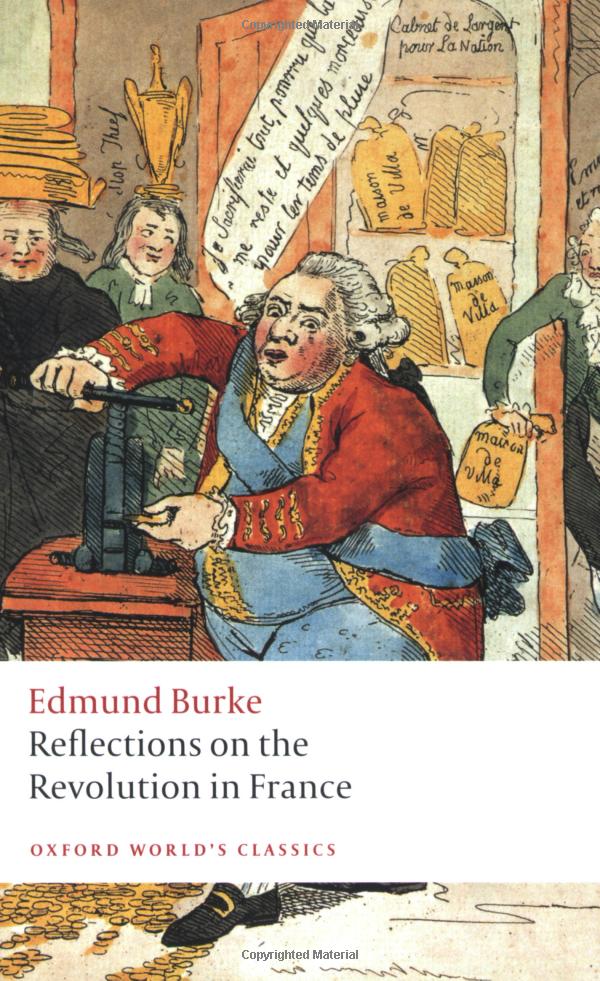
Having extensively studied and written on the popular politician and political theorist, scholar Ian Crowe understands Edmund Burke. Our dialogue includes remarks on Burke’s charm, big-name admirers, and legacy.
You’ve published numerous books – not to mention scholar-oriented journals – on Edmund Burke, thus making you an expert. When was your relationship with the late famous subject formed?
I first became interested in Burke’s political thought at school and in college (in the late-1970s and early-1980s) through reading two books in particular: David Thomson’s Political Ideas, and (more importantly) Roger Scruton’s The Meaning of Conservatism. By the time I was at college, I had developed a strong interest in the political and intellectual origins of modern conservatism. This was rather unusual at a time, before Margaret Thatcher had swung into her stride, when the orthodoxy assumed that “progress” betokened a kind of benign slide into some form of soft state socialism. Conservative ideas interested me since they engaged the imagination, and Burke’s thought, in particular, appealed to me as it seemed to privilege a sense of the beauty of a gradually, carefully cultivated social order above the elitist spirit of innovation.
Later, while I was teaching political thought in schools, I drew on Burke’s Reflections as a counter-weight to the predictable syllabus diet of Rousseau, Mill, and Marx, and looked around for ways to increase the opportunities for students to acquire a wider understanding of Burke’s writings. That’s what eventually led to my compiling the collection of essays for the bicentenary of Burke’s death, in 1997 – the volume that was published through the Intercollegiate Studies Institute here in the United States as The Enduring Edmund Burke.

Political theorists of all stripes have praised Reflections on the Revolution in France at varying times. Modern conservatives claim a philosophical heritage. Can you explain its broad appeal?
The underlying political message of the Reflections is so distinctive it is almost counter-intuitive for us nowadays. First, nobody can deny its prophetic quality: Burke captures something peculiarly modern in the revolutionary mind, and this demands attention, however much one may try to explain away the later “homicide philanthropy” of the revolution itself through immediate circumstances and decisions. Second, the argument gives compelling voice to political feelings and affections that people sense are important but that are too often discounted and marginalized in political discourse nowadays. Third, Burke discomforts many of us, I think, by the sheer persuasiveness of the historical and poetic imagination that he brings to bear on politics. He attempts to communicate to us on levels that force us to confront apparent contrarieties in our political assumptions about power, order, and liberty.
Prominent thought leaders such as Winston Churchill and Russell Kirk were influenced by Burke’s writings. What’s so captivating about him?
I think we are back to language and imagination here: both Churchill and Kirk were craftsmen of imagination and great wordsmiths: they speak so as to hold in tension the conflicts and paradoxes of man’s life in society. I think they can do this – and Lincoln achieved it, too – because they are able to use words and imagery that reveal the universal in the particular, and vice versa. That ability to reason and observe on two levels simultaneously, as it were, serves to rein in the impulsive energy of power, and this is why it is such an unwelcome facet of political thinking for those politicians who see short-term pragmatism on the one hand and, on the other hand, the pursuit of ideological goals (however humanitarian) as their main focus.

To borrow from The Enduring Edmund Burke, an edited volume of yours, just how did he endure?
Precisely in his being an admonition to the exercise of power, while committed to political action as duty. This is the insider/outsider who, I believe, is caught so well in the writings of David Bromwich and Russell Kirk in particular. It echoes the inner check that civilizations require to progress or develop in a healthy way.
Keeping alive Burkean thought matters deeply to you. Why should younger Americans read Mr. Burke? Which primary or secondary sources do you recommend?
I think the greatest threat to our politics in the days ahead is the total triumph of a phenomenon that Burke saw in embryo in the Protestant Ascendancy, Indianism, and Jacobinism: it is the arrogance of power that feeds upon an ideological mindset. By ideology I mean not just a coherent system of thought, but the intellectual conviction (which is really an irrational belief) that there is a key to explain all the phenomena of society – reason, perhaps, or class, or race, – and that this key, applied by the “right” hands, with the required powers, can promise a progressively better future for humans. The problem is that ideologies, to achieve the goals they set themselves, must reform – or, rather, deform – the very thing that they claim to be liberating or perfecting – the human person. The ideological mindset is so prevalent now, in liberal democracies as much as in totalitarian systems, that it is hardly noticed. It explains, in large part, the intolerance of open debate – the tedious and corrosive charges of “hate” and the such – that dominate politics today. Any hope of resisting this phenomenon will require reacquaintance with a number of qualities that have been written out of the political handbook but that are at the center of Burke’s thought: the need to understand culture as rooted in the ongoing contract of generations; the need for imagination in an approach to politics and society; a humility that combines commitment to public participation and duty with an awareness of the complexity and ultimate unknowability of things.
For primary sources, I would suggest Peter Stanlis’ Best of Burke, which is still a great and accessible anthology of Burke’s works. For secondary studies, one is almost spoilt for choice now, but I would recommend: Kirk’s Edmund Burke, A Genius Reconsidered, for conveying the imaginative qualities of Burke; the first of David Bromwich’s two-volume study Edmund Burke: An Intellectual Life; F.P Lock’s two-volume biography of Burke [Edmund Burke, Volume I: 1730-1784 and Edmund Burke, Volume II: 1784-1797]; and, most recently, the massive but highly accessible political life of Burke by Richard Bourke, Empire and Revolution. Perhaps I may also be permitted to recommend the two collections of essays that I have edited, The Enduring Edmund Burke and An Imaginative Whig, since what is best in them will be found in the contributions of scholars and politicians who were willing and generous enough to allow me to publish their own thoughts on Burke and his relevance today. Finally, on the matter of relevance, there are two recent publications that merit serious attention, Yuval Levin’s The Great Debate: Edmund Burke, Thomas Paine, and the Birth of Right and Left, and Jesse Norman’s Edmund Burke: The First Conservative.

Learn more about Edmund Burke
- Wikipedia entry
- Stanford Encyclopedia of Philosophy page
- BBC History bio
- Online Library of Liberty profile
- Good Reads quotes
Know of another great resource on Edmund Burke? Please contact us via our email newsletter. We’ll add it!
Learn more about Ian Crowe
- Russell Kirk Center for Cultural Renewal index
- Studies in Burke and His Time journal archive
- C-SPAN appearances
- Imaginative Conservative articles
- Belmont Abbey College faculty webpage
- Intercollegiate Studies Institute author profile
Additional Books
- Patriotism and Public Spirit: Edmund Burke and the Role of the Critic in Mid-Eighteenth-Century Britain
- An Imaginative Whig: Reassessing the Life and Thought of Edmund Burke
- Unwelcome Truths: Edmund Burke on Today’s Political Conceits
Dr. Ian Crowe is an associate professor of history at Belmont Abbey College and Edmund Burke Society director.
Enjoy learning about political philosophy? Read our interviews with economist Lawrence Reed and Reagan biographer Craig Shirley.